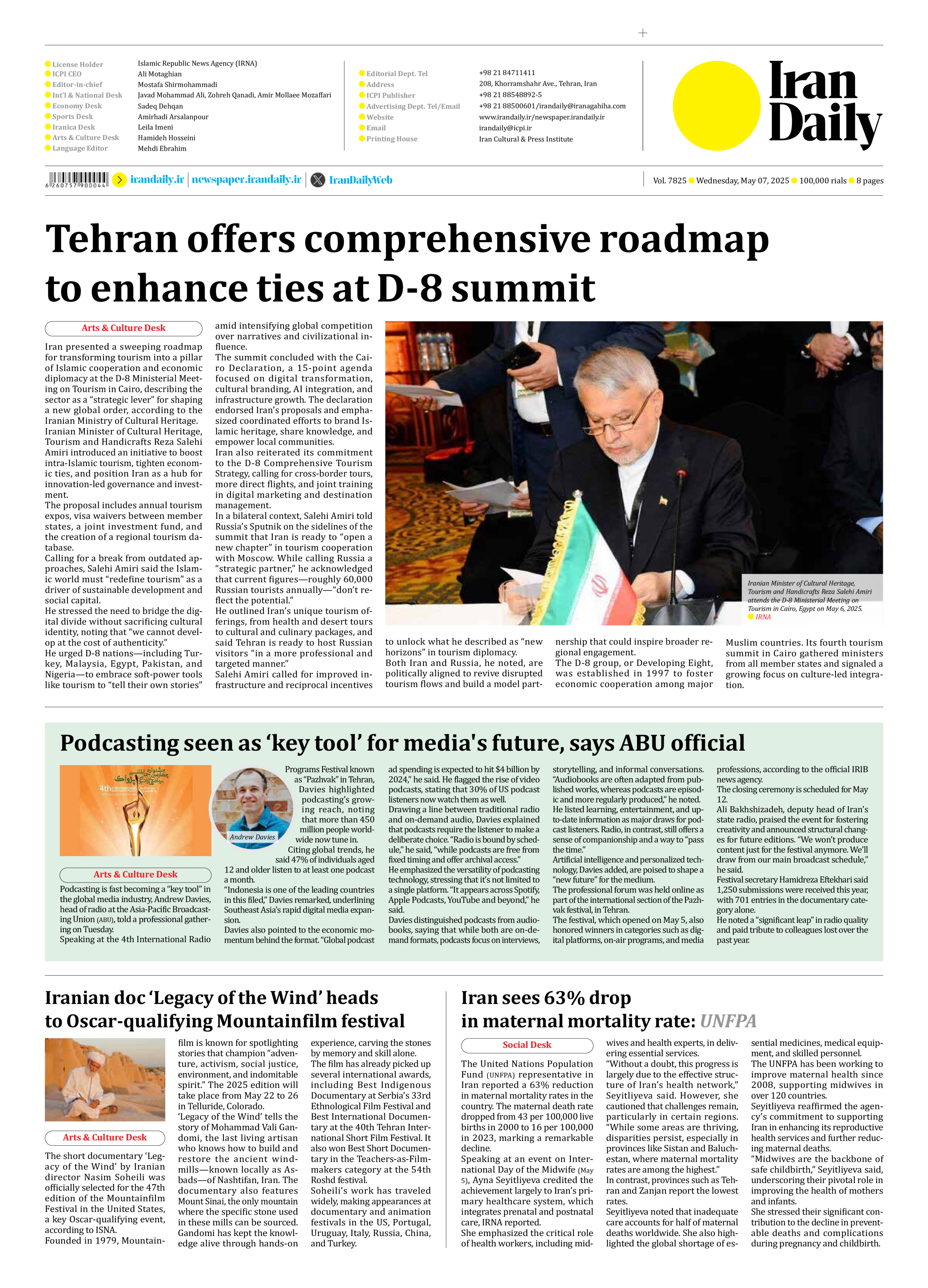
Tehran offers comprehensive roadmap to enhance ties at D-8 summit
Iran presented a sweeping roadmap for transforming tourism into a pillar of Islamic cooperation and economic diplomacy at the D-8 Ministerial Meeting on Tourism in Cairo, describing the sector as a “strategic lever” for shaping a new global order, according to the Iranian Ministry of Cultural Heritage.
Iranian Minister of Cultural Heritage, Tourism and Handicrafts Reza Salehi Amiri introduced an initiative to boost intra-Islamic tourism, tighten economic ties, and position Iran as a hub for innovation-led governance and investment.
The proposal includes annual tourism expos, visa waivers between member states, a joint investment fund, and the creation of a regional tourism database.
Calling for a break from outdated approaches, Salehi Amiri said the Islamic world must “redefine tourism” as a driver of sustainable development and social capital.
He stressed the need to bridge the digital divide without sacrificing cultural identity, noting that “we cannot develop at the cost of authenticity.”
He urged D-8 nations—including Turkey, Malaysia, Egypt, Pakistan, and Nigeria—to embrace soft-power tools like tourism to “tell their own stories” amid intensifying global competition over narratives and civilizational influence.
The summit concluded with the Cairo Declaration, a 15-point agenda focused on digital transformation, cultural branding, AI integration, and infrastructure growth. The declaration endorsed Iran’s proposals and emphasized coordinated efforts to brand Islamic heritage, share knowledge, and empower local communities.
Iran also reiterated its commitment to the D-8 Comprehensive Tourism Strategy, calling for cross-border tours, more direct flights, and joint training in digital marketing and destination management.
In a bilateral context, Salehi Amiri told Russia’s Sputnik on the sidelines of the summit that Iran is ready to “open a new chapter” in tourism cooperation with Moscow. While calling Russia a “strategic partner,” he acknowledged that current figures—roughly 60,000 Russian tourists annually—“don’t reflect the potential.”
He outlined Iran’s unique tourism offerings, from health and desert tours to cultural and culinary packages, and said Tehran is ready to host Russian visitors “in a more professional and targeted manner.”
Salehi Amiri called for improved infrastructure and reciprocal incentives to unlock what he described as “new horizons” in tourism diplomacy.
Both Iran and Russia, he noted, are politically aligned to revive disrupted tourism flows and build a model partnership that could inspire broader regional engagement.
The D-8 group, or Developing Eight, was established in 1997 to foster economic cooperation among major Muslim countries. Its fourth tourism summit in Cairo gathered ministers from all member states and signaled a growing focus on culture-led integration.







